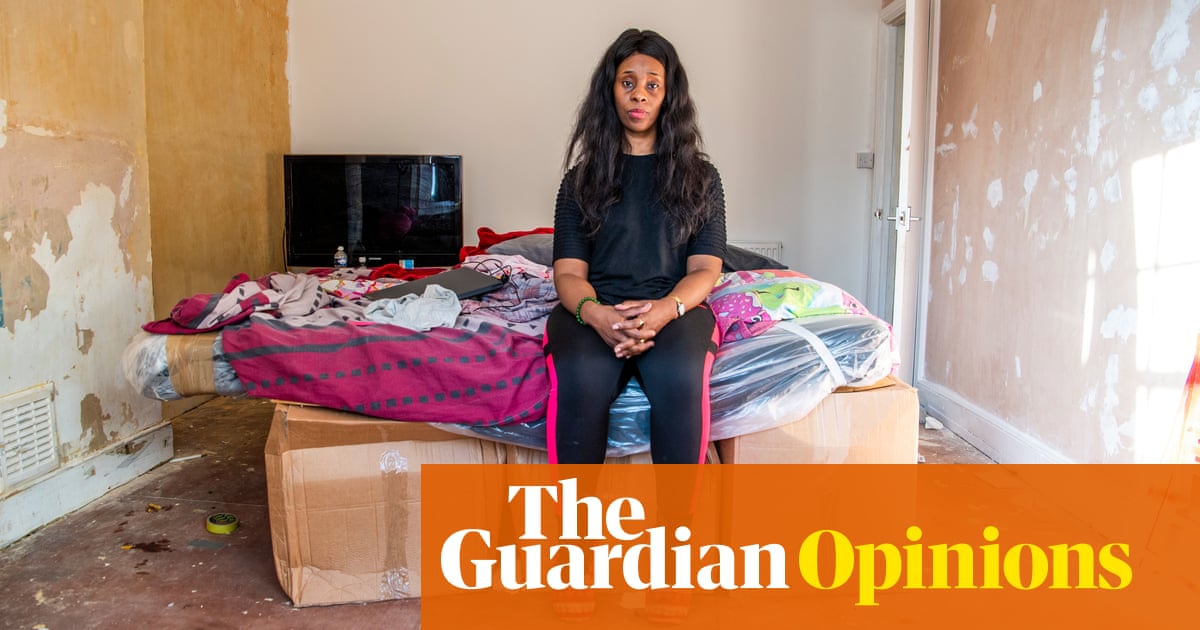
So far this year, three of my friends have celebrated buying their first flats in their early 40s, after a decade of saving for a deposit out of the leftovers from extortionate rent, while watching house prices continue to rise.
Buying your first home was once something you did in your 20s but, compared with those 10 or 20 years younger than us, we’re the lucky ones: buying a flat in London zone 3 is just about affordable for people who, while they may not have had parental help, have earned professional salaries in their 30s.
The British infatuation with home ownership has become a national cliche. But to disparage it as an obsession implies that it is a quaint cultural anachronism. In fact, worrying about getting on the housing ladder is one of the most economically rational things you can do. In a country where we don’t build enough homes, and wealth tied up in housing is taxed at absurdly low levels, the home ownership club offers a number of exclusive benefits.
The monthly cost of the average mortgage is cheaper than rent for the equivalent home; private renters spend 36% of their income on housing, compared with 12% for mortgage owners. Rising house prices mean that, by the time you’ve paid off your mortgage, not only will you have somewhere to live cost free, you will have an asset that has inflated significantly in value to pass on to children or grandchildren. And then there is the all-important security of not having to move home at short notice because your landlord decides to up the rent or kick you out.
Boris Johnson’s latest proposal to expand home ownership by asking housing associations to sell off homes to their tenants at a discount, and allowing people to put benefit payments towards a mortgage, is just the latest in a long line of bad ideas that purport to expand these benefits to more people. Invariably, the help-to-buy schemes of the past 20 years have been about trying to help over the line a few people who are close to being able to buy, while making things worse for everyone else by further inflating prices or reducing the stock of social homes. In fact, one minister’s estimate that the scheme could help just a few thousand is probably on the optimistic side: housing associations are independent bodies, which the government would have to bribe rather than force to sell off their stock, and people with modest levels of savings are disqualified from benefits, which begs the question of how many could afford a deposit.
The ugly truth at the heart of the housing crisis is that politicians have zero incentive to pursue policies that would truly make housing more affordable. Rising house prices straightforwardly redistribute from those who rent to those who own. Politically, homeowners have much more power than renters: even as the number of renters grows. Both parties fear the upset that falling house prices would generate among some far more than the delight they would prompt among others. Economically, Britain’s model of growth is predicated on consumer spending fuelled by rising house prices: we simply do not have the healthier form of investment – and export-led growth that politicians have promised but failed to deliver.
The result is that prices have been left to rise out of control in recent decades, celebrated by a generation who have enjoyed the windfall and politicians who have welcomed the growth the increase has stoked, even as they claim to sympathise that far fewer millennials than baby boomers will own homes by the time they are 40. The private rented sector has expanded to take up the slack: one in five households live in privately rented homes, compared with just one in 10 households 20 years ago. Renters in Britain get appalling value, paying some of the highest amounts in Europe for insecure tenancies, with a quarter of privately rented homes of substandard quality.
Young people without parental help to fall back on have been screwed royally by the dysfunctional housing market. More than a quarter of 21- to 34-year-olds live with their parents. Rents are, of course, highest in areas where the best jobs are to be found. If not being able to afford a rental deposit is bad for those in their 20s who can find a good job while continuing to live at home, it is an appalling block on social mobility for those it keeps in areas where there simply aren’t the jobs to which they aspire.
But as the generation that can never hope to own a home grows older, other dysfunctions will become more prominent. We will see rising numbers of middle-income parents with children facing the same private-rental trap long faced by those on low incomes: imagine having to move your child to a different school because your tenancy has ended and you can’t find somewhere else affordable to rent, then that happening again in a couple of years. What will happen to those who have rented all their working lives when they hit retirement and don’t have the security of a generous pension or a paid-off mortgage?
The solutions are largely obvious but politically difficult. The government must invest in a huge programme of building homes for not-for-profit rent: the only period in living memory when we built enough in this country was 1950-1980, when the government invested in building around 100,000 homes a year; leaving it to the private sector has never worked.
We need radical reforms to renting, to regulate rents, guarantee long-term tenancies and ensure landlords extract no more than a modest profit, and owning residential property for investment purposes should be taxed more punitively. These reforms would stabilise prices and reduce the windfall benefits of home ownership that are derived at the expense of private renters.
If that all sounds like a pipe dream, it might not be too long before demographic change starts to tip the balance of power more towards renters, as the group shut out of the club continues to grow. However, this leaves the big unanswered question: if not from the asset bubble that is our dysfunctional housing market, where will Britain’s growth come from?












